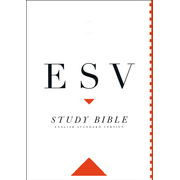Before we can move into the deep and varied topics that make up the apologetical landscape, we need to understand something that’s very important to every single person in the world; our beliefs. The beliefs that we hold show our individual perception of the world. Belief is foundational to who you are. Beliefs are central to our individuality and we hold so many that you couldn’t begin to count them, including some we wouldn’t even recognize as a belief at all. Tom Morris says, “We sometimes use the word belief to refer to an important conviction.” (Morris 42). He the then goes on to list the following statements about belief:
We share the belief that stealing is wrong.
I hold the belief that there is a God.
He believes that democracy is the best form of government.
Those are some examples of very obvious and profound beliefs, the likes of which will shape not only our lives, but the lives of those around us. Unlike these convictions we also hold beliefs that are less obvious or philosophical.
I believe that the number 2 comes after the number 1.
I believe that I am inside my home writing this devotional.
These beliefs are not essential for me to live my life, but they are my beliefs nonetheless. I also believe that I know these things, but some beliefs are not part of what we would call knowledge.
We want our individual beliefs to be true; we want them to connect us to reality, and to reflect the truths of our world during our lifetime. More than that, we want to be secure in the knowledge that our beliefs are true and not just opinions that we stubbornly and ignorantly hold. So, then, what is knowledge? Tom Morris puts it better than I can. “Our concept of knowledge is first of all an attainment concept. In basketball we shoot in order to score. Shooting is the activity; scoring is the attainment intended. In the life of the mind, we believe in order to know. Believing is, in a sense, the activity; knowing is the intended attainment.” (Morris 44-45).
When we believe something we are usually striving to determine its truth, but, “Just as you can shoot a basketball and not score a basket, you can believe something and not thereby have knowledge.” (Morris 45). So, again, what is knowledge? Knowledge is properly justified true belief. Belief is necessary for knowledge, but belief alone is not enough for knowledge. It is possible to believe something that is not true and think that you know it. In order to have knowledge you have to have actual, identifiable truth.
Truth can be defined as, “that which corresponds to its object.”(Geisler, Turek, and Limbaugh 37). Now, in our society, the philosophy of Relativism is the appropriate school of thought on truth. Relativism claims that there is no absolute truth, but that different things may be true for me than are true for you. Did you notice the problem with that school of thought? Relativism claims that there is no such thing as absolute truth, but Relativism is claiming that this idea of there being no absolute truth is the ultimate, absolute truth about truth. Relativism is making the absolute truth claim that there is no absolute truth! This is contradictory, and Relativism is therefore self-defeating.
Some may say, “Well, I like Rocky Road ice cream and you like chocolate ice cream. That’s relative so Relativism is true.” There are certain small areas of personal taste where a limited relativism is okay. Consider the following statements:
This ice cream tastes good.
The Dallas Cowboys are the best team in the NFL.
It is cold outside.
It could be true that the ice cream tastes good to me, but not to you. It could be true for me that the Cowboys are awesome, but maybe you think that the Broncos are better, and it could also be true that I think its cold outside, but you do not. However, there are things that are absolutely true about these statements regardless of our personal taste. The above statements are very different from saying:
This ice cream is two years old.
The Dallas Cowboys are not an NFL team.
It is 56 degrees outside.
These statements are examples of standard truth claims about reality. It is either true or false, but Relativism blurs that line. Remember, truth is what ties us to the world and our beliefs. We are tied tight to reality by truth, but falsehoods cut our ties to the way things really are. I like the way that Norman Geisler and Frank Turek put it, “contrary beliefs are possible, but contrary truths are not possible. We can believe everything is true, but we cannot make everything true.”(Geisler, Turek, and Limbaugh 38).
Now back to the idea of knowledge. We have seen so far that there are two essentials necessary to have knowledge. The first is belief and the second is truth; but these are not sufficient enough to have knowledge. There has to be some sort of link between our mental state affirmation and the state of reality that makes this affirmation true. What we need is proper justification. What sufficient reasons or grounds are there for a belief to be held and counted as knowledge?
There must be evidence that points to a belief being reasonable to hold. We cannot just believe something because it’s the latest fad, or because someone else just told us it was true, or because we don’t like the idea of dealing with the consequences of our belief should we come to find out it’s wrong. Without some kind of link, reason, or evidence to bridge a belief and count it as knowledge–there is no proper justification for holding that belief.
Christian apologetics provides the link between my belief that God is real and my knowing that God is real. The evidence, the reasons, the proof is out there. God has revealed Himself in wonderful and amazing ways; we just have to look, and apologetics is one way of looking. I hold the properly justified, true belief that God is real, and that Jesus loves us all, and I want to share that knowledge with you.
Sources:
Morris, Tom.Dr.PhD.1.Philosophy for Dummies. Foster City, CA:IDG Books, 1999.
Geisler, Norman L., Frank Turek, and David Limbaugh.I Don’t Have Enough Faith To Be
An Atheist.Crossway Books, 2004.



